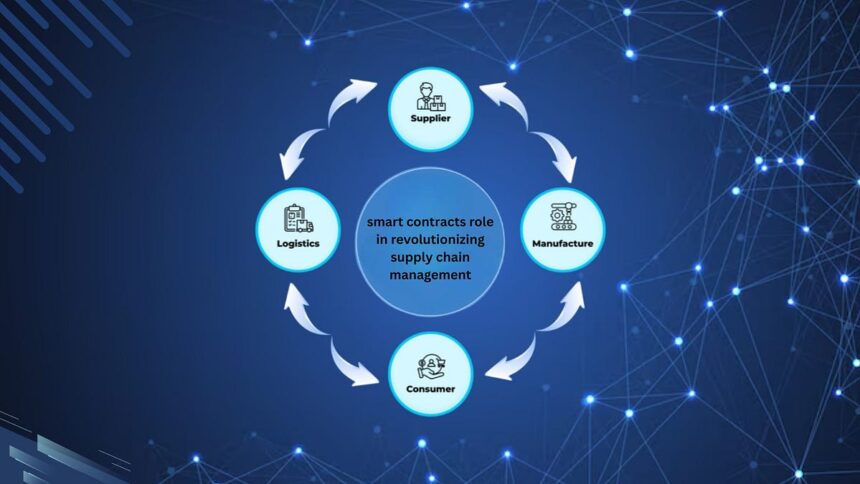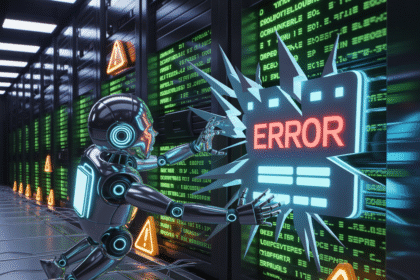The supply chain industry is undergoing a significant shift, driven by the adoption of blockchain technology and smart contracts. These innovations are not just buzzwords — they are practical solutions that address longstanding challenges such as transparency, efficiency, and trust in supply chain operations. As businesses seek to modernize their processes, understanding the role of smart contracts and the importance of Smart Contract Audit Services becomes essential.
For companies considering the adoption of blockchain-based solutions, the need for reliable, secure, and compliant smart contracts cannot be overstated. Smart Contract Audit Services play a crucial role in validating the integrity and security of these automated agreements, ensuring that businesses can confidently integrate them into their supply chain workflows.
Smart contracts are self-executing agreements with the terms of the contract directly written into code. They run on blockchain networks, which means every transaction and agreement is recorded on a secure, decentralized ledger. Because the code executes automatically when predefined conditions are met, smart contracts eliminate the need for intermediaries, reduce the risk of disputes, and provide a transparent record of all actions.
In supply chain management, smart contracts can automate processes such as payment releases, inventory updates, and shipment tracking, making operations faster and more reliable.
Increased Efficiency
Automation is at the heart of smart contracts. By reducing manual intervention, businesses can speed up transactions and decision-making. This is particularly valuable in supply chains, where delays can ripple through the entire network. For example, a smart contract can automatically trigger a payment to a supplier once a shipment is verified, eliminating the need for manual processing and reducing the time required to complete transactions.
Enhanced Transparency
All parties in a supply chain have access to the same information, thanks to the shared ledger provided by blockchain technology. This transparency reduces disputes and fosters trust among stakeholders. Retailers, manufacturers, and logistics providers can track the origin, authenticity, and status of products at every stage, ensuring compliance with standards and regulations.
Cost Reduction
Smart contracts eliminate the need for intermediaries such as brokers or notaries, resulting in significant cost savings. Automated contract execution also minimizes the administrative overhead associated with manual processes. Fewer errors and faster payments further improve cash flow, allowing businesses to reinvest in their operations more quickly.
Improved Traceability
Real-time tracking of goods is a hallmark of smart contracts in supply chain management. Businesses can monitor the movement of products from production to delivery, ensuring accountability and compliance. This is especially important for industries with strict regulatory requirements, such as pharmaceuticals and food.
Risk Mitigation
Automated execution reduces the risk of human error and fraud. Smart contracts ensure that payments and other actions are only triggered when all conditions are met, minimizing the chances of disputes and financial losses.
Scalability
As businesses grow, smart contracts can easily handle increased transaction volumes without requiring significant changes to infrastructure. This scalability makes them ideal for large, complex supply chains.
Procurement and Supplier Agreements
Traditionally, procurement involves manual negotiation, purchase orders, invoices, and letters of credit — all of which require human validation and are prone to errors and fraud. Smart contracts automate these processes by executing payments and other actions based on predefined conditions. For example, a payment can be released automatically when a shipment arrives and passes inspection. Multi-signature wallets ensure that funds are only released with approval from both buyer and seller, adding an extra layer of security.
Dynamic pricing is another innovative feature enabled by smart contracts. Real-time data from decentralized oracles can adjust contract terms based on market prices or demand fluctuations, ensuring that both buyers and suppliers get a fair deal.
Tracking shipments across multiple jurisdictions is a major challenge for logistics companies. Lost goods, fraud, and counterfeiting cost businesses billions of dollars each year. Smart contracts, combined with IoT devices, can continuously log real-time data such as GPS location, temperature, and humidity, storing this information on a blockchain for all stakeholders to access.
Tokenizing shipments as Non-Fungible Tokens (NFTs) provides a unique digital certificate of authenticity and ownership, making it easier to verify the legitimacy of goods and resolve disputes. If a shipment arrives in poor condition, the smart contract can trigger automatic insurance claims or refunds, streamlining dispute resolution.
Smart contracts can automate inventory management by triggering reorders when stock levels fall below a certain threshold. Real-time tracking of inventory across multiple locations ensures accurate data and reduces discrepancies. Automated updates and transactions minimize human error, leading to more reliable inventory records.
Integration with IoT devices allows businesses to monitor storage conditions such as temperature and humidity, ensuring that products are kept in optimal environments. This is particularly important for perishable goods and pharmaceuticals.
The transparency and audit capabilities of smart contracts simplify compliance with regulations. All transactions and agreements are recorded on a blockchain, providing a tamper-proof record that can be easily audited. This reduces the costs and complexity associated with regulatory reporting and audits.
As businesses adopt smart contracts for supply chain management, the importance of Smart Contract Audit Services cannot be overstated. Auditing ensures that smart contract code is secure, reliable, and compliant with industry standards and regulations. A thorough audit identifies vulnerabilities, prevents hacks, and protects businesses from financial losses.
Smart Contract Audit Services involve a comprehensive review of the contract’s code and architecture. Auditors use automated tools and manual code reviews to identify potential security risks and provide actionable recommendations for improvement. Threat modeling, automated security analysis, and incident planning are all part of a robust audit process.
Choosing a reputable audit provider is essential for businesses looking to integrate smart contracts into their supply chain. Companies like Codezeros offer experienced auditors, detailed reports, and a commitment to confidentiality, making them a trusted partner for businesses seeking secure, reliable smart contracts.
Automating Transactions
Smart contracts can automatically execute payments, transfer ownership, and update records based on predefined conditions. This eliminates the need for manual processing and reduces the risk of errors and disputes.
Enhancing Traceability
By recording every transaction on a blockchain, smart contracts provide a complete and tamper-proof history of each product’s journey. This is invaluable for industries that require strict traceability, such as food, pharmaceuticals, and luxury goods.
Reducing Fraud
Automated execution and cryptographic verification make it difficult for bad actors to manipulate transactions. This reduces the risk of fraud and increases trust among supply chain partners.
Improving Compliance
Smart contracts make it easier to comply with regulations by providing a transparent and auditable record of all actions. This is particularly important for industries with strict regulatory requirements, such as healthcare and finance.
Facilitating Real-Time Data Sharing
All stakeholders have access to the same information in real time, enabling better collaboration and decision-making. This is especially valuable in complex, multi-party supply chains.
While smart contracts offer many benefits, businesses must also be aware of potential challenges:
- Code Vulnerabilities: Smart contracts are only as secure as their code. Vulnerabilities can lead to hacks and financial losses, making audits essential.
- Regulatory Uncertainty: The legal status of smart contracts varies by jurisdiction. Businesses must ensure that their contracts comply with local laws and regulations.
- Integration Complexity: Integrating smart contracts with existing systems can be complex and may require significant investment in technology and training.
- Scalability Issues: While smart contracts are scalable, blockchain networks may face performance limitations as transaction volumes increase.
Smart Contract Audit Services are a critical step in the adoption of blockchain-based supply chain solutions. Audits ensure that contracts are secure, reliable, and compliant, protecting businesses from financial and reputational risks. A thorough audit involves code review, threat modeling, and incident planning, providing businesses with the confidence to deploy smart contracts in their operations.
Choosing the right audit provider is key. Look for companies with experience in your industry, a proven track record, and a commitment to transparency and security. Codezeros, for example, offers comprehensive audit services, detailed reports, and a team of experienced auditors who understand the unique challenges of supply chain management.
The adoption of smart contracts is expected to grow rapidly in the coming years. As blockchain technology matures and regulatory frameworks evolve, more businesses will recognize the value of automated, transparent, and secure supply chain processes. Smart contracts will enable new business models, improve collaboration, and drive efficiency across industries.
To stay competitive, businesses must invest in secure, audited smart contracts and partner with trusted providers of Smart Contract Audit Services. This will ensure that they can fully realize the benefits of blockchain technology while minimizing risks.
Are you ready to modernize your supply chain with smart contracts? Protect your business and build trust with your partners by choosing Codezeros for your Smart Contract Audit Services. Our experienced team will review your smart contract code, identify vulnerabilities, and provide actionable recommendations to ensure security, reliability, and compliance. Contact Codezeros today to learn more and schedule your audit.










